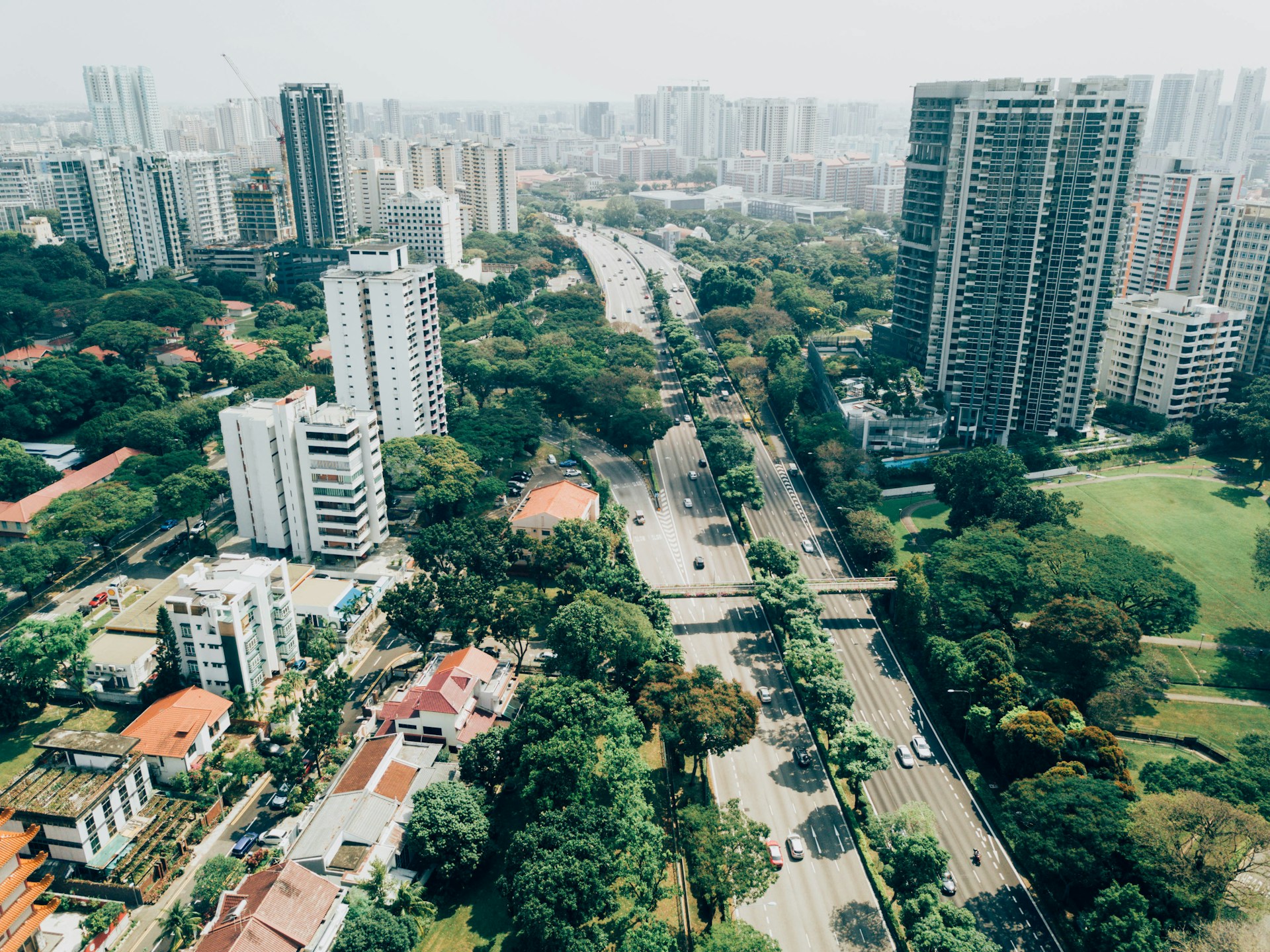Introduction
The search for a perfect place to call home often leads to exploring housing society. These communities offer a sense of belonging, security, and sometimes, a plethora of amenities. But before diving headfirst into society life, it’s crucial to understand what housing societies are all about.
What is a Housing Society?
A housing society, also known as an apartment complex, gated community, or residential society, is a collection of residential units (apartments, villas, bungalows) built on a shared property with common amenities and infrastructure. These societies are typically managed by a Residents’ Welfare Association (RWA) or a designated management committee.
Types of Housing Society:
Housing societies can be categorized in several ways:
a. By Property Type:
High-rise apartments, low-rise apartments, villas, bungalows, independent floors.
b. By Location:
Located within city limits, suburban areas, outskirts of the city.
c. By Builder/Developer:
Different developers may offer varying levels of amenities, security features, and overall quality.
d. By Affordability:
Luxury societies with premium amenities cater to a higher budget, while budget-friendly societies offer basic amenities at a lower cost.
Advantages and Disadvantages of Living in a Housing Society
Advantages:
a. Security and Safety:
Many societies have gated entry, security guards, and CCTV surveillance, providing a sense of security for residents.
b. Amenities and Facilities:
Societies often offer amenities like swimming pools, gyms, playgrounds, community halls, and landscaped gardens, promoting a comfortable lifestyle.
c. Sense of Community:
Living in close proximity to neighbors can foster a sense of belonging and connection, especially when the society organizes social events or celebrations.
d. Maintenance and Upkeep:
The society management is responsible for overall maintenance of common areas, garbage disposal, and repairs, ensuring a clean and well-maintained environment.
e. Centrally Located Amenities:
Some societies may be located near schools, hospitals, shopping malls, offering convenient access to essential services.
Disadvantages:
a. Restricted Freedom:
Some societies might have strict rules regarding pets, visitors, noise levels, or activities within the premises.
b. Monthly Maintenance Fees:
Residents pay a monthly maintenance fee to cover the costs of common area upkeep, security, and other services.
c. Limited Personal Space:
Apartment living in high-rise buildings might offer less personal space compared to independent houses.
d. Parking Issues:
Depending on the available parking spaces and number of residents, parking can be a concern in some societies.
e. Potential for Disputes:
Disagreements with neighbors or issues with society management can arise, which might require collective resolution through the RWA.
Essential Considerations When Choosing a Housing Society
1. Define Your Needs and Budget:
a. Size and Type of Accommodation:
Choose an apartment/villa that suits your family size and lifestyle needs.
b. Amenities and Features:
Prioritize the amenities that are important to you (e.g., gym, swimming pool, children’s play area).
c. Location:
Consider proximity to your workplace, preferred schools, or essential services.
d. Security Features:
Evaluate security measures like gated entry, security personnel, and CCTV cameras.
e. Monthly Maintenance Fee:
Ensure the maintenance fee fits comfortably within your monthly budget.
2. Research and Compare Housing Societies:
a. Visit Different Societies:
Get a firsthand feel for the layout, amenities, and overall environment.
b. Talk to Residents:
Interact with current residents to gain insights into the community and its management.
c. Read Online Reviews:
Check online reviews and forums to gather perspectives from existing residents.
3. Understand Society Rules and Regulations:
a. Review the Society Bylaws:
Carefully read the society’s rules and regulations regarding maintenance fees, parking, pet policies, and other restrictions.
b. Management Committee:
Inquire about the reputation and efficiency of the society’s management committee.
c. Dispute Resolution Process:
Be aware of the process for addressing any disputes with neighbors or management within the society.
4. Inspect the Apartment/Villa:
a. Physical Condition:
Thoroughly inspect the apartment/villa for potential issues like leaks, cracks, or faulty electrical wiring.
b. Amenities Functionality:
Ensure the amenities you prioritize are functioning properly (e.g., gym equipment, swimming pool cleanliness).
c. Noise Levels:
Check for potential noise sources like traffic, construction, or generators from nearby areas.
5. Consider Future Developments:
a. Planned Infrastructure Projects:
Research any planned infrastructure projects near the society that might affect traffic flow or noise levels.
b. Expansion Plans:
Inquire about potential expansion plans within the society that could impact available amenities or parking spaces.
Amenities and Facilities Offered by Housing Societies
1. Common Amenities:
a. Security Features:
Gated entry, security guards, CCTV surveillance systems.
b. Maintenance Services:
Housekeeping staff for common areas, garbage disposal, repairs and maintenance of infrastructure.
c. Landscaped Gardens:
Well-maintained green spaces for relaxation and visual appeal.
d. Children’s Play Area:
Dedicated space for children to play with swings, slides, and other equipment.
e. Community Hall:
Multipurpose space for gatherings, events, or resident meetings.
f. Parking:
Surface parking lots or multi-level parking garages, depending on the society’s design and capacity.
2. Additional Amenities (May Vary by Society):
a. Swimming Pool:
A popular amenity, especially in warmer climates.
b. Gymnasium:
Equipped with exercise equipment for fitness enthusiasts.
c. Indoor Games Room:
Space for residents to enjoy activities like billiards, table tennis, or carrom.
d. Amphitheater/Open-air Theater:
Venue for hosting cultural events, movie screenings, or resident performances.
e. Library:
A collection of books and reading spaces for residents.
f. Convenience Stores:
Small shops within the society for everyday essentials.
g. Indoor Sports Facilities:
Amenities like badminton courts, squash courts, or basketball courts might be available in some societies.
Society Management and Resident Welfare Associations (RWAs)
1. Society Management:
The overall management of a housing society is typically handled by a Residents’ Welfare Association (RWA) or a designated management committee. This committee is responsible for:
a. Maintenance and Upkeep:
Ensuring common areas, amenities, and infrastructure are well-maintained and functional.
b. Financial Management:
Collecting maintenance fees, managing the society’s budget, and paying for services like security or housekeeping.
c. Rule Enforcement:
Implementing and enforcing society rules and regulations for the benefit of all residents.
d. Communication and Transparency:
Keeping residents informed about society developments, maintenance schedules, and financial reports.
2. Resident Participation
Residents play a crucial role in maintaining a healthy and vibrant society.
a. RWA Elections:
Residents can participate in electing members to the RWA or management committee, ensuring responsible leadership.
b. Meetings and Discussions:
Regular meetings provide residents with a platform to voice concerns, suggest improvements, and contribute to decision-making.
c. Building a Sense of Community:
Residents can actively participate in society events, celebrations, or initiatives that foster a sense of belonging and connection.
Conclusion
Housing societies offer a unique living experience with a blend of convenience, security, and sometimes, a plethora of amenities. However, it’s vital to choose the right society that aligns with your needs and preferences.
By considering the factors outlined in this guide, including your budget, desired amenities, location, and society management structure, you can embark on your search for the perfect housing society to call home. Remember, a well-managed society with a strong sense of community can significantly enhance your quality of life.




